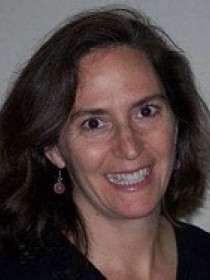Connect with Ronnee
About Ronnee
Schreiber’s research interests are in the area of women and politics, particularly women in American political institutions and women and public policy. She is especially interested in how ideological and partisan differences among women shape their political activism, electoral fortunes, and representational strategies. She teaches courses in American Government, Gender and Politics, Interest Groups and Social Movements, and Public Policy. Schreiber has worked as a grassroots lobbyist in Washington, DC, served on the Board of a local Planned Parenthood and is regularly invited to speak to civic and political organizations about the status of women in politics.
Contributions
How Conservative Women's Organizations Challenge Feminists in U.S. Politics
Key Findings Brief,
In the News
Quoted by Rebecca Nelson in "The Women Who Won't March: 'Silenced' Conservatives Vow to Stay Home," The Guardian, January 19, 2017.
Opinion: "Are Political Conventions Still an Important Part of American Civic Life?," Ronnee Schreiber, San Diego Union Tribune, August 26, 2012.
Opinion: "Don’t Underestimate Palin’s Appeal to Women," Ronnee Schreiber, CNN.com, December 9, 2008.
Opinion: "The Rise of the Female Right," Ronnee Schreiber, Pennsylvania Gazette, January/February 2009.
Publications
"Righting Feminism: Conservative Women and American Politics" (Oxford University Press, 2012).
Analyzes how national conservative women’s organizations strategize to represent women’s interests in U.S. politics. Compares differences among conservative women on advocacy related to violence against women, family and work balance and women’s reproductive health policies.
"Mama Grizzlies Compete for Office: Gender, Ideology and the Presentation of Self in the 2010 Elections" New Political Science 34, no. 4 (2012): 549-563.
Examines ideological and partisan differences among women matter in terms of how they campaign for office and evaluates the extent to which gender identity, parental status, and being endorsed by Palin and/or other Tea Party organizations matters in terms of how women present themselves as congressional candidates.
"Dilemmas of Representation: Conservative and Feminist Women’s Organizations React to Sarah Palin" in Women of the Right: Comparisons and Exchanges across National Borders, edited by Kathleen M. Blee and Sandra McGee Deutsch (Penn State University Press, 2012), 273-290.
Compares how national conservative and feminist women’s organizations reacted to the nomination of Sarah Palin for Vice President of the United States. Builds on theories of representation and demonstrates how feminists grapple with a conservative women being nominated to a position of power and how conservative women use the occasion to promote their status as representatives of women.
"Gender, Campaign Finance, and Electoral Success in Municipal Elections" (with ). Journal of Urban Affairs 33, no. 11 (2011): 83-97.
Examines why women are under-represented in electoral politics by examining the political fortunes of women who run for local offices. Analyzes demographic and campaign finance data from local elections in seven cities and finds that when women run, they are just as successful as men, but that fewer women than men seek local positions.
"Who Speaks for Women? Print Media Portrayal of Feminist and Conservative Women’s Advocacy" Political Communication 27, no. 4 (2010): 432-452.
Analyzes how print journalists depict feminist and conservative women’s organizational activism over a fourteen year span, and whether or not political polarization is furthered by this coverage. Provides information about frequency of media coverage, as well as how advocates are labeled, on which issues they are getting visibility, and whether or not media present feminist and conservative women's organizations as being in direct conflict with each other.
